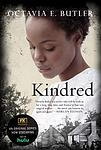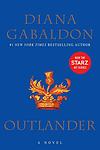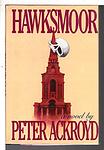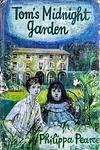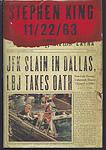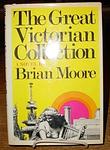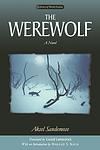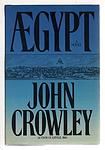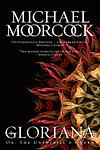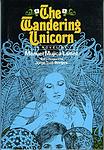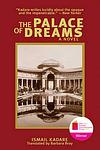The Greatest "Historical fiction, Fiction, Speculative Fiction" Books Since 1900
Click to learn how this list is calculated.
This list represents a comprehensive and trusted collection of the greatest books. Developed through a specialized algorithm, it brings together 300 'best of' book lists to form a definitive guide to the world's most acclaimed books. For those interested in how these books are chosen, additional details can be found on the rankings page.
Genres
Historical fiction is a genre of literature that combines fictional stories with real historical events, settings, and characters. These books often take place in a specific time period and are based on research and factual information, but also include imaginative elements to create a compelling narrative. Historical fiction allows readers to experience the past in a unique and engaging way, while also providing insight into the social, cultural, and political issues of the time.
Speculative fiction is an umbrella genre encompassing narrative fiction with supernatural or futuristic elements. This includes genres such as science fiction, fantasy, horror, supernatural fiction, superhero fiction, utopian and dystopian fiction, apocalyptic and post-apocalyptic fiction, and alternate history. The unifying factor of speculative fiction is its departure from the narrative constraints of reality, exploring imaginative and often profound questions that challenge our understanding of the world and our place within it. These stories often delve into themes like the human condition, social commentary, and the exploration of philosophical and ethical dilemmas through the lens of the fantastical or the yet-to-be-possible. By pushing the boundaries of the known, speculative fiction invites readers to consider the myriad possibilities of existence and the potential consequences of our actions in worlds that are, at once, vastly different from and eerily similar to our own.
Countries
Date Range
Reading Statistics
Click the button below to see how many of these books you've read!
Download
If you're interested in downloading this list as a CSV file for use in a spreadsheet application, you can easily do so by clicking the button below. Please note that to ensure a manageable file size and faster download, the CSV will include details for only the first 500 books.
Download-
1. Beloved by Toni Morrison
This novel tells the story of a former African-American slave woman who, after escaping to Ohio, is haunted by the ghost of her deceased daughter. The protagonist is forced to confront her repressed memories and the horrific realities of her past, including the desperate act she committed to protect her children from a life of slavery. The narrative is a poignant exploration of the physical, emotional, and psychological scars inflicted by the institution of slavery, and the struggle for identity and self-acceptance in its aftermath.
-
2. Cloud Atlas by David Mitchell
This novel is a unique blend of six different stories, each set in a different time and place, spanning from the 19th century South Pacific to a post-apocalyptic future. Each tale is written in a different style, reflecting the time and setting it represents, and they are all connected through shared themes and recurring motifs. The stories are nested within each other, with each interrupted by the next, only to be concluded in the second half of the book. The novel explores themes of predacity, civilization, reincarnation and the eternal recurrence of the same behaviors throughout history.
-
3. Kindred by Octavia E. Butler
"Kindred" is a gripping and thought-provoking novel that follows the life of Dana, a young African American woman living in the 1970s. Suddenly, she finds herself inexplicably transported back in time to the early 19th century, where she becomes entangled in the lives of her ancestors, who are enslaved on a plantation. As Dana navigates the brutal realities of slavery, she grapples with her own identity, the complexities of race, and the enduring legacy of the past. With its powerful storytelling and exploration of the connections between past and present, "Kindred" is a profound examination of history, race, and the enduring resilience of the human spirit.
-
4. Outlander by Diana Gabaldon
The novel follows a World War II nurse who accidentally time travels back to 18th century Scotland. There, she meets a handsome and brave Scottish warrior and is torn between her loyalty to her husband in her own time and her growing love for the warrior. As she becomes more entwined in the past, she must navigate the dangers of a time not her own, including political unrest and violence, while trying to find a way back home.
-
5. Hawksmoor by Peter Ackroyd
"Hawksmoor" is a novel that alternates between the 18th century and the 1980s, focusing on two characters both named Nicholas Dyer and Nicholas Hawksmoor. Dyer, an architect in the 18th century, constructs seven churches in London, each with a dark and sinister secret. In the 1980s, Hawksmoor, a detective, investigates a series of murders that occur in the same churches. The narrative explores themes of history, time, architecture, and supernatural elements, creating an eerie and atmospheric tale.
-
6. The Underground Railroad by Colson Whitehead
This novel follows the journey of Cora, a young slave on a cotton plantation in Georgia, who escapes and embarks on a journey towards freedom via the Underground Railroad. The book presents a literal version of the historical Underground Railroad, portraying it as a physical network of tunnels and tracks beneath the Southern soil. As Cora travels from state to state, she encounters different worlds and harsh realities, each one illuminating the various forms of oppression Black people faced in America. The narrative is a brutal exploration of America's history of slavery and racism, and a testament to the unyielding spirit of those who fought against it.
-
7. The Painted Bird by Jerzy Kosinski
"The Painted Bird" is a dark and harrowing novel set in Eastern Europe during World War II. The story follows a young, unnamed boy of unknown ethnicity who is sent by his parents to live in a remote village for safety. However, he is instead subjected to brutal violence, abuse, and superstition by the superstitious peasants. The book explores themes of survival, human cruelty, and the loss of innocence in the face of war and hatred.
-
8. Tom's Midnight Garden by Philippa Pearce
In "Tom's Midnight Garden," a young boy named Tom is sent to stay with his aunt and uncle in their small apartment while his brother recovers from measles. Feeling bored and lonely, Tom discovers a magical garden that only appears at midnight. As he explores the garden, he meets a young girl named Hatty who lived there in the past. Together, they embark on a series of adventures, uncovering the mysteries of time and friendship.
-
9. The River Sutra by Gita Mehta
"The River Sutra" by Gita Mehta is a captivating novel that explores the intertwining lives of various characters along the sacred river Narmada in India. Through vivid storytelling and rich descriptions, the book delves into themes of spirituality, love, and the search for meaning in life. As the characters embark on journeys of self-discovery, the river serves as a powerful metaphor for the flow of life and the interconnectedness of all beings. With its lyrical prose and thought-provoking narrative, "The River Sutra" offers a profound exploration of the human experience and the timeless wisdom of ancient traditions.
-
10. The Arabian Nightmare by Robert Irwin
"The Arabian Nightmare" is a captivating and surreal journey through the dreams and nightmares of a young scholar named Abdulla. Set in medieval Cairo, the book explores the blurred lines between reality and fantasy as Abdulla becomes entangled in a web of magical creatures, mythical beings, and supernatural occurrences. With richly descriptive prose and a deep understanding of Arabian folklore, the story delves into themes of identity, love, and the power of storytelling, leaving readers questioning the nature of dreams and the boundaries of the human imagination.
-
11. The Last Bouquet by Marjorie Bowen
"The Last Bouquet" by Marjorie Bowen is a captivating historical novel set in 18th-century France. The story follows a young woman named Genevieve, who finds herself caught in the midst of the French Revolution. As chaos and violence engulf the nation, Genevieve's life takes a dramatic turn when she becomes entangled with a group of revolutionaries. Faced with difficult choices and dangerous secrets, she must navigate a treacherous path to protect her loved ones and find her own freedom. Bowen's vivid storytelling and rich historical detail bring this tumultuous period to life, offering a compelling tale of love, sacrifice, and resilience.
-
12. The Song of Achilles by Madeline Miller
The novel is a reimagining of the ancient Greek epic of the Trojan War, told from the perspective of Patroclus, an exiled young prince who becomes the beloved companion of Achilles, the greatest warrior of his age. Their deep bond and affection for one another transform into a powerful love that defies the expectations of their society and the will of the gods. As they grow into men, their fates become increasingly intertwined with the legendary conflict at Troy, where honor, sacrifice, and destiny culminate in a poignant and tragic conclusion. The story explores themes of heroism, glory, and the humanizing effects of love against the backdrop of war and the capricious whims of immortals.
-
13. The Crystal Cave by Mary Stewart
"The Crystal Cave" is a historical fiction novel that tells the story of Merlin, the legendary wizard of King Arthur's court. The book follows Merlin's early life, from his birth as the illegitimate son of a Welsh princess to his discovery of his magical powers and his journey to become a wise and powerful advisor to the future King Arthur. Set against the backdrop of early medieval Britain, the novel explores themes of destiny, power, and the struggle between pagan and Christian beliefs.
-
14. 11 22 63 by Stephen King
"11/22/63" is a science fiction novel by Stephen King that follows the story of Jake Epping, a high school English teacher who discovers a portal that leads to 1958. After being convinced by his friend Al to use the portal to prevent the assassination of John F. Kennedy, Jake embarks on a journey through time to change the course of history. Along the way, he falls in love with a woman named Sadie and faces various obstacles that threaten to alter the timeline he is trying to change. The book explores themes of love, loss, and the consequences of trying to change the past.
-
15. The Great Victorian Collection by Brian Moore
"The Great Victorian Collection" is a captivating novel that follows the journey of a wealthy collector who becomes obsessed with acquiring a vast collection of Victorian artifacts. As he delves deeper into his obsession, he becomes entangled in a world of deception, greed, and scandal. Set in the backdrop of 1950s London, this thought-provoking and atmospheric tale explores the dark side of obsession and the consequences it can have on one's life.
-
16. The Werewolf by Aksel Sandemose
"The Werewolf" is a psychological thriller set in a small Norwegian town where the residents are terrorized by a series of brutal murders. The protagonist, a young man, returns to his hometown after many years abroad and is soon suspected of being the werewolf behind the killings. As he seeks to clear his name, he must confront the town's dark past and its deeply ingrained superstitions. The book explores themes of fear, guilt, and the struggle between rationality and irrational beliefs.
-
17. Aegypt by John Crowley
The novel explores the intertwining lives of several characters, primarily that of a historian who becomes obsessed with the alternative histories and esoteric knowledge of the Renaissance period. As he delves deeper into his research, he begins to question the nature of history, reality, and the possibility of there being more than one true history of the world. The narrative weaves together personal transformation, magical occurrences, and the pursuit of hidden truths, set against the backdrop of both contemporary America and historical Europe, challenging the reader's perception of reality and the boundaries between fact and fiction.
-
18. Gloriana by Michael Moorcock
The novel is a rich tapestry of court intrigue, politics, and personal conflicts set in an alternate Elizabethan England. The story centers around the reign of Gloriana, the Queen of Albion, who is the embodiment of her nation's prosperity and peace. Despite her successful rule, Gloriana is plagued by an inner emptiness and a quest for personal fulfillment. The narrative weaves together the lives of various courtiers and foreign dignitaries, each with their own ambitions and desires, as they navigate a labyrinth of power struggles and secret alliances. The queen's quest for satisfaction ultimately leads to a dramatic and unexpected resolution that challenges the very foundation of her kingdom's society and her role within it.
-
19. Indigo by Marina Warner
"Indigo" is a reimagining of Shakespeare's "The Tempest" set in the modern era. The book tells the story of a wealthy London businessman who is exiled to a Caribbean island where he uses his knowledge of science to control the environment and the island's inhabitants. His daughter, Miranda, grows up on the island, sheltered from the world and manipulated by her father's experiments. The story explores themes of colonialism, power, and the destructive potential of knowledge.
-
20. Ariosto by Chelsa quinn yarbro
The book is a historical novel that delves into the life and times of the Italian Renaissance poet Ludovico Ariosto, best known for his epic poem "Orlando Furioso." It weaves a rich tapestry of 16th-century Italy, exploring Ariosto's struggles with patronage, his service to the d'Este family, and his quest for artistic freedom amidst the political and cultural constraints of his era. The narrative captures the complex interplay between art, politics, and personal ambition, providing a vivid portrayal of a creative genius navigating the turbulent waters of courtly life and leaving an indelible mark on Western literature.
-
21. La Saga/ Fuga de J. B./ The Saga/ Escape of J.B. by Gonzalo Torrente Ballester
"La Saga/ Fuga de J. B./ The Saga/ Escape of J.B." is a complex narrative that explores the themes of reality and fiction, and their intersection. The story revolves around a mysterious character, J.B., who escapes from a novel into the real world. As he navigates this new realm, the boundaries between the fictional world he came from and the reality he now inhabits become increasingly blurred, leading to a surreal and thought-provoking exploration of the nature of existence.
-
22. Zayni Barakat by Jamal al- Ghitani
"Zayni Barakat" is a captivating novel set in 19th-century Egypt, following the life of Zayni Barakat, a young man caught in the midst of political and societal turmoil. As he navigates through a world of corruption, power struggles, and forbidden love, Zayni's journey becomes a reflection of the struggles faced by the Egyptian people. Through vivid storytelling and rich historical context, the book explores themes of identity, revolution, and the complex dynamics of a nation on the brink of change.
-
23. The Wandering Unicorn by Manuel Mujica Lainez
"The Wandering Unicorn" is a historical fantasy novel that weaves a tapestry of medieval legends, chivalric adventures, and magical realism. It follows the journey of a young unicorn who, under the guise of a beautiful page, seeks to protect Melusine, a cursed fairy who is half-woman, half-serpent. Set against the backdrop of the Crusades, the narrative intertwines the unicorn's quest for redemption and love with a rich cast of characters, including knights, sorcerers, and mythical creatures. The story delves into themes of immortality, transformation, and the enduring power of myth, all while painting a vivid picture of a bygone era filled with enchantment and intrigue.
-
24. Gog by Andrew Sinclair
The book is a satirical narrative that follows the journey of a seven-foot-tall man who awakens with amnesia in a pit in the UK. With no memory of his past, he embarks on a quest to discover his identity, guided by cryptic clues he finds along the way. His odyssey takes him through the eccentric and often grotesque landscapes of post-war Europe, where he encounters a bizarre cast of characters and experiences that reflect the absurdities and the cultural and political anxieties of the mid-20th century. The protagonist's search for self-understanding becomes a metaphorical journey through a society struggling to find meaning in the aftermath of chaos and destruction.
-
25. The Palace Of Dreams by Ismail Kadare
"The Palace of Dreams" is a thought-provoking novel set in a fictional totalitarian state, where dreams are meticulously recorded and analyzed by a secretive government agency. Mark-Alem, a young clerk, finds himself entangled in the intricate web of the Palace of Dreams, as he is assigned to interpret dreams that could potentially influence the fate of the nation. As he navigates through a world filled with political intrigue and personal dilemmas, Mark-Alem is forced to question the nature of reality, the power of dreams, and the consequences of suppressing individuality in the pursuit of control.
Reading Statistics
Click the button below to see how many of these books you've read!
Download
If you're interested in downloading this list as a CSV file for use in a spreadsheet application, you can easily do so by clicking the button below. Please note that to ensure a manageable file size and faster download, the CSV will include details for only the first 500 books.
Download

